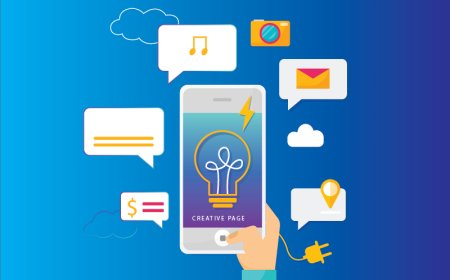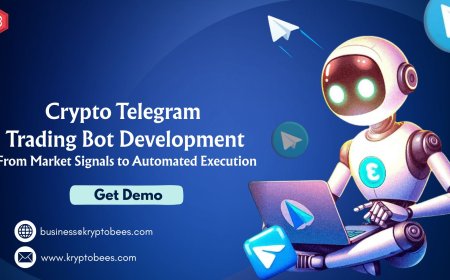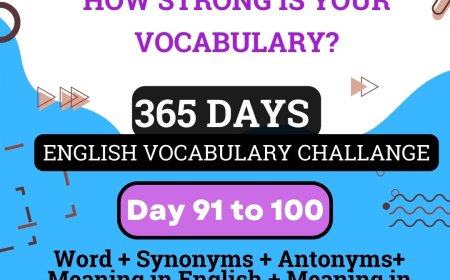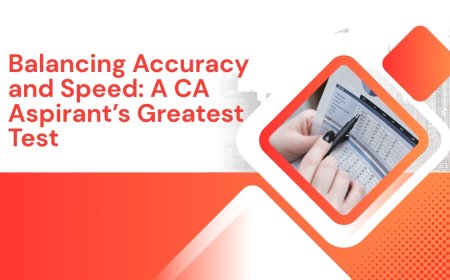How to Use AI for Social Media Content Planning
In todays fast-paced digital environment, brands are under constant pressure to stay relevant, consistent, and engaging across their social media platforms. Managing multiple accounts, posting schedules, audience preferences, and performance metrics manually has become almost impossible without the help of technology. Enter AI for Social Mediaa game-changing solution that's revolutionizing how businesses and content creators plan, manage, and optimize their content calendars.
This article dives deep into how artificial intelligence can streamline your social media content planning process, enhance creativity, improve performance, and reduce manual workload, while also offering a glimpse into what the future holds for AI-driven marketing strategies.
The Evolution of Social Media Content Planning
Before the arrival of AI, social media content planning was predominantly a manual task involving brainstorming sessions, editorial calendars, A/B testing, and heavy reliance on social media managers' intuition. While some tools allowed scheduling and basic analytics, they lacked predictive intelligence or real-time adaptability. With AI, this entire process has become more strategic, data-driven, and automated.
Artificial intelligence doesnt just automate repetitive tasks; it adds intelligence to the workflow. From trend analysis to performance forecasting, content generation to optimal posting times, AI can handle a wide range of tasks with precision and speed, freeing up human teams to focus on strategy and creativity.
Why AI for Social Media Is a Game-Changer
Using AI for Social Media content planning has multiple advantages. One of the key strengths of AI lies in its ability to analyze vast amounts of data in real time. Social media trends, audience behavior, competitor activity, and engagement patterns are all captured and processed by AI algorithms to provide actionable insights.
AI tools can recommend the best type of content to post (videos, images, carousels, or reels), the ideal time to post for maximum engagement, and even the optimal tone of voice for a specific audience. They can help predict what kind of content will go viral based on historical data, thereby minimizing trial and error.
Moreover, AI tools integrate seamlessly with most social media platforms, offering suggestions on hashtags, captions, and visuals, all while ensuring brand consistency and tone.
AI-Powered Tools Shaping the Future of Content Planning
Theres a growing ecosystem of AI tools designed specifically to assist with social media content planning. Tools like Lately.ai, Copy.ai, Predis.ai, and ChatGPT are used to generate captions, create content calendars, and analyze engagement metrics.
These tools go beyond basic scheduling. For example, Lately.ai learns from your highest-performing content to create data-backed suggestions for future posts. Predis.ai can generate creatives with on-brand visuals and captions by simply feeding in a business category and a few keywords. ChatGPT, while known for its natural language generation, can also help brainstorm campaign ideas, suggest improvements, and even write scripts for video content.
Such tools allow for hyper-personalization at scale. AI identifies what resonates with your audiencewhether its humor, tutorials, emotional storytelling, or product educationand tailors content suggestions accordingly.
How AI Enhances Every Stage of the Content Planning Process
AI can support every stage of the content planning cyclefrom research to execution to performance analysis.
In the research phase, AI helps marketers monitor trending topics, hashtags, and competitor strategies using social listening tools. Platforms like Brandwatch and Sprout Social use machine learning to gather insights from millions of posts and highlight what's gaining traction in your niche.
During the planning phase, AI generates ideas for content topics and suggests content types based on audience behavior and past performance. It can also auto-generate text, image, and even video assets with natural language and image processing capabilities.
When it's time to publish, AI can suggest the best time slots for different platforms based on when your audience is most active. Tools like Buffer and Later now offer smart scheduling powered by AI to boost reach and engagement.
In the analysis phase, AI goes beyond vanity metrics like likes and shares. It assesses engagement quality, sentiment, conversion impact, and even audience retention. These insights can then feed back into the planning loop, making future campaigns smarter and more effective.
The Human Touch: Why AI Should Augment, Not Replace
Despite its capabilities, AI is not a substitute for human intuition, creativity, and emotional intelligence. AI lacks context, cultural nuance, and the human experiences that often make content relatable. The most successful AI-driven strategies involve a hybrid approachletting AI handle the heavy lifting while humans infuse creativity and emotional depth.
For example, AI might suggest posting a meme about a trending topic, but only a human can determine whether that meme aligns with the brand's values or could potentially offend a segment of the audience. AI might write the first draft of a caption, but humans are still needed to tweak the tone, add humor, or craft a compelling call to action.
Measuring Success: KPIs to Watch When Using AI
When integrating AI into your social media strategy, it's important to define and track the right performance indicators. Look at metrics like content engagement rate, follower growth, audience sentiment, share-of-voice, click-through rates, and conversion rates.
AI can also help identify patterns across these KPIs. For instance, it may reveal that posts published at a certain time on Wednesdays generate more qualified leads or that using a specific color palette improves post visibility on Instagram. This kind of data empowers marketers to refine their content calendar with confidence.
Learning to Use AI in Marketing
As AI becomes a foundational pillar of digital marketing, upskilling in AI-powered tools and techniques is essential for marketers. Enrolling in an AI Marketing Course can help professionals understand not just how to use the tools, but how to integrate them strategically into broader campaigns.
Such courses often cover real-world case studies, hands-on tool usage, and ethical considerations, helping marketers stay ahead of the curve while using AI responsibly and creatively.
The Future of AI-Driven Social Media Strategies
The next phase of AI in social media is moving towards predictive and generative intelligence. Imagine tools that not only suggest what to post today but can simulate how your audience might react to a planned post next week. Predictive models are being developed that forecast social media trends weeks in advance, giving early movers a competitive edge.
Generative AI is also evolving rapidly, now capable of producing synthetic voices for video narration, realistic avatars for brand ambassadors, and even auto-generated community replies based on brand guidelines. As these technologies mature, the ability to run entire micro-campaigns autonomously could become a reality.
Final Thoughts
Using AI for Social Media content planning isn't just a passing trendits a strategic evolution in how brands engage with their audiences. From ideation and execution to analysis and optimization, AI empowers marketers to be more agile, creative, and effective.
However, the most powerful outcomes come from blending the analytical strength of AI with the human ability to inspire, empathize, and connect. As you explore this new frontier, consider investing in training, experimenting with tools, and maintaining a clear brand voice to ensure that your AI-assisted efforts dont just perform wellthey resonate deeply.


























